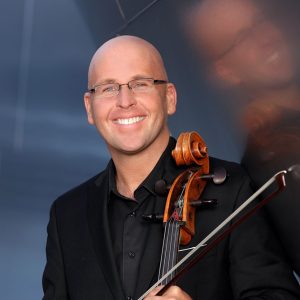
“Why?” That is the Question!
Robert DeMaine
“You can lead a horse to water, but you can’t make him drink.” So the proverb goes.
As a teacher, I think to myself, “Wouldn’t it be something if I made a positive difference in all these people’s lives?”
Well, that would be mighty grand, but if I can reach just one really thirsty horse, then it has all been worthwhile.
And here, I am humbled by the important question at hand: How does one organize a thought and articulate it in a helpful, meaningful, and transparent way to the recipient of the message? Can just one life be changed for the better?
I’ll do my best 😉
To be sure, I have my share of opinions and a certain amount of experience in the “field that chose me” (and any good musician knows what I mean by that), and it is my hope that these words may help even one aspiring cellist in understanding not just “how” to achieve his or her goals in a life and career in music, but “why” he or she is on this path. “Why am I doing this? Why does this intangible thing, this wonderful and miraculous phenomenon of nature, have possession over my entire being, my soul?”
Of course, the quick answer is that you LOVE IT, but let’s look at another catalyst: ambition—a very valuable, useful and necessary fuel for success.
What is ambition? We all know how it feels to want something so much that it hurts. Too often do I encounter people of every physical and occupational description who have a white-hot burning desire for a goal—material or intangible—to attain or achieve in life, but not always knowing what is behind it, what drives that desire. I also happen to see one of those guys every day…when I shave.
So, “why” has become another obsession for me: finding, examining, and defining this force that drives ambition—the “fuel” behind the fuel.
One need not look any further for examining “why” than the current situation in my orchestra, which is currently embroiled in a very long and bitter strike. The musicians are fighting for what they believe is right and good, and it is a formidable test of their strength and determination, while living under very lean circumstances. Yes, it’s very clear that the biggest tests in life occur when one is faced with profound loss and change. During these difficult times “why” starts to emerge, indifferent to what we may think or want to hear, and life begins to reveal a sense of purpose with amazing clarity. These watershed events are often the best laboratories (or practice rooms, if you like), to foster one’s sense of purpose and fortify his or her resolve.
It goes without saying that higher learning such as conservatory training is essential, and the years of study and toil and considerable expense and investment, learning to succeed (yes, it is a choice and a skill) and handle success, pulling oneself up from seemingly unrelenting failure (one never reads about this in artists’ bios, but it would be enlightening to examine the “B-sides.” That’s where the good, character-building stuff would be found)—all are essential elements to building and sustaining a career.
But the most important higher education begins the day you leave school.
And it is tuition-free.
I’ll leave you with a poignant and magnificent expression of “why” by a very recognizable and consummate professional:
Take care, and thanks for reading!
Cheers,
Robert
Subjects: Artistic Vision
Tags: cello, improvement, performance, self, Teaching
